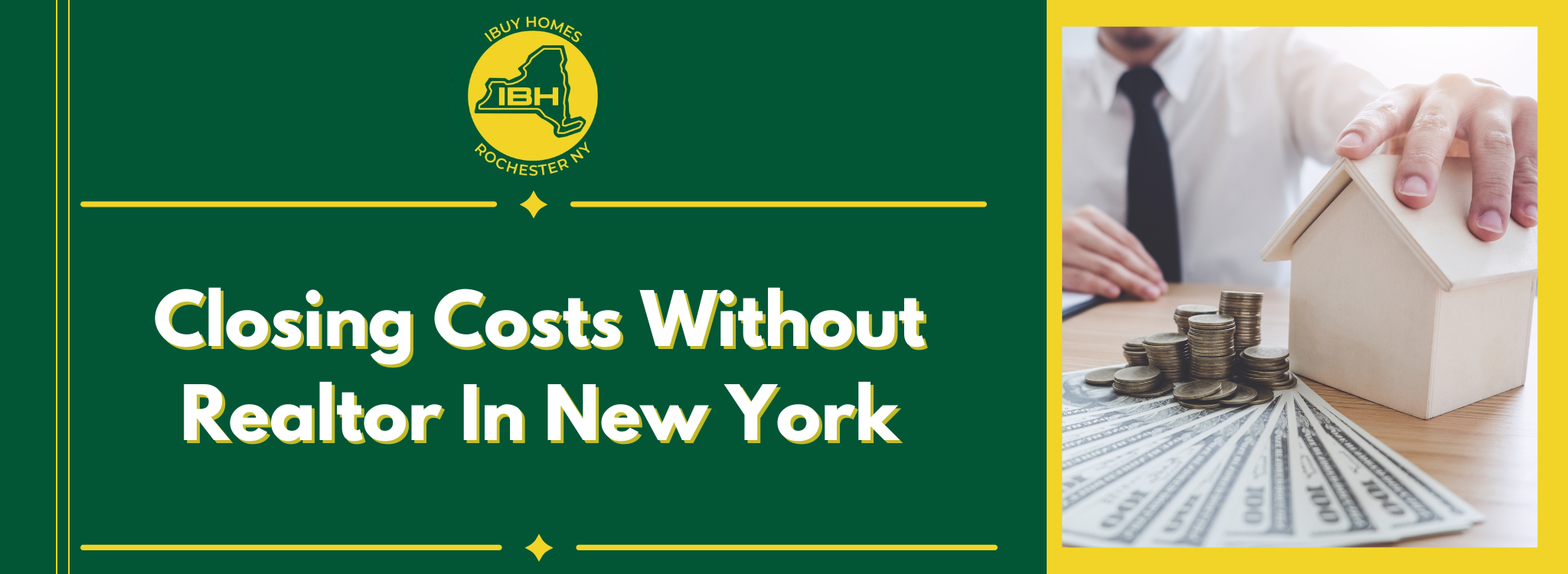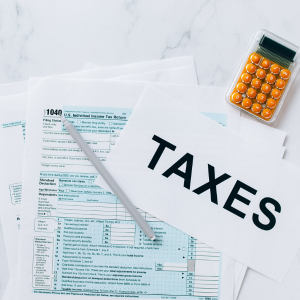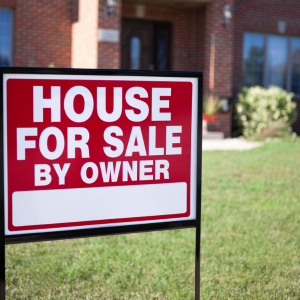
Navigating NYC Closing Costs Without a Realtor: A Buyer’s Guide
Essential Buyer Closing Costs in NYC (excluding realtor fees)
If you want to buy a house in New York City without a realtor, you need to know about the different closing prices. Here is a full list of the most important costs you may face:

- Title Insurance: This insurance covers you in case someone makes a claim or puts a lien on your property. You may need policies from both the loan and the owner.
- Attorney Fees: In NYC, legal representation is generally necessary for real estate transactions to handle paperwork and negotiations effectively.
- Mortgage Recording Tax: This is a significant expense for buyers taking out a mortgage and is computed as a percentage of the loan amount.
- Transfer Taxes: When you sell a house, you have to pay both state and city transfer taxes, which add to the total cost.
- Appraisal & Survey Expenses: These are essential for validating property value and determining property boundaries.
Being aware of these costs can help you plan your budget appropriately before closing.
Mortgage Recording Tax in NYC
New York City homebuyers have to pay a lot of money for the mortgage filing tax. This is how it works:
- Co-ops: Generally exempt, since the tax mainly affects condominiums and single-family homes.
- Exemptions: Some transactions might qualify for exemptions or reductions based on property type and buyer status.
- Calculation Methods: It’s usually 1.8% for loans less than $500,000 and 1.925% for loans more than that.
Understanding these details can help buyers manage their finances better.
Title Insurance Options for NYC Homebuyers
Title insurance offers crucial protection when purchasing property. Consider the following options:
- Lender’s Title Insurance: Lenders usually need this to protect their money.
- Owner’s Title Insurance: Optional but advised for comprehensive coverage against title issues.
- Co-op Exemption: Co-op purchasers usually don’t need title insurance as they acquire shares in a corporation.
- Cost Comparisons: Rates vary; shopping around can lead to potential savings.
Buyers should explore these options to balance protection and cost management effectively.
Unexpected Buyer Fees
Homebuyers should be ready for extra fees beyond the main closing costs:
- Appraisal Costs: Needed to confirm the property’s market value, this typically costs a few hundred dollars.
- Survey Fees: Important for defining property boundaries to avoid future disputes.
- Miscellaneous Expenses: These might include credit report fees, bank processing fees, among others.
Anticipating these costs can help ensure a smoother closing process without unexpected financial burdens.
I Buy Homes Rochester offers resources and tools to help navigate these complex closing costs efficiently. For more detailed information, Learn More.
Selling Your NYC Property Without a Realtor: Understanding the Costs
Essential Seller Closing Costs in NYC (without realtor fees)

When selling property in New York City without a realtor, it’s important to grasp the essential closing costs. Here are some key expenses:
- Property Taxes: Sellers must pay their prorated share of property taxes up until the closing date.
- Transfer Tax: This consists of both New York City and State transfer taxes.
- Real Estate Attorney Fees: Legal representation is crucial to ensure all documents meet state and local regulations.
Knowing these costs helps sellers make informed decisions about their real estate transactions.
NYC Real Property Transfer Tax (RPTT)
For buyers, the NYC Real Property Transfer Tax (RPTT) is a big expense. This tax needs to be calculated by:
- Calculation: The rate depends on the property’s sale price, generally 1% for properties up to $500,000 and 1.425% for those above.
- Example: For a property sold at $750,000, the RPTT would be $10,687.50.
Being aware of this tax can help buyers make better budgets.
New York State Transfer Tax
Apart from the RPTT, sellers need to consider the New York State Transfer Tax:
- State Taxes: The standard rate is 0.4% of the sale price.
- Exemption: Certain exemptions may apply, and sellers should consult with their legal advisors.
Understanding these state taxes ensures sellers fulfill all financial obligations related to their real estate transactions.
Seller Attorney Fees
Engaging an attorney is necessary in the selling process:
- Attorney Fees: Costs typically range from $1,500 to $3,000, depending on the complexity of the sale.
- Legal Representation: An experienced real estate attorney ensures that all legal documents are in order and provides guidance through the closing process.
Understanding these fees helps sellers budget appropriately and avoid unexpected costs during the sale.
Strategies to Minimize NYC Closing Costs: Buyer & Seller Tips
Saving Money by Avoiding a Realtor
Selling a property in the New York real estate market without using a realtor can lead to considerable savings. By opting for a “For Sale By Owner” (FSBO) approach, you avoid the typical commission fees, which are usually around 5-6% of the home’s sale price. However, this method does come with potential risks. Without professional guidance, you might undervalue your property or miss important negotiation opportunities.
To maximize benefits while minimizing risks:
- Flat-Fee MLS Services: These services enable FSBO sellers to list their properties on the Multiple Listing Service (MLS) for a flat fee, offering wide exposure without the full costs of an agency.
- Evaluate Risks: Be mindful of potential pitfalls like incorrect pricing or legal issues.
FSBO can lower closing costs but requires diligence and a strong understanding of the market.
Agent-Assisted FSBO (For Sale By Owner)
An agent-assisted FSBO strikes a balance between going fully solo and using a traditional real estate professionals. In this scenario, sellers collaborate with a broker for certain tasks while retaining control over the selling process. This approach provides access to expert advice while aiming to reduce overall costs.

Consider these points:
- Benefits: Do not pay full commissions when you get professional help with pricing, negotiating, and papers.
- Drawbacks: You might still face fees for certain services, and understanding the New York real estate market remains essential.
Explore selling strategies that match your goals and financial needs.
Flat-Fee MLS Listing Services
Using flat-fee MLS services can be a cost-effective way to gain extensive market exposure. These services let you list your property on the MLS without engaging a full-service real estate professional.
Advantages include:
- Cost Comparison: Lower costs compared to traditional agent commissions.
- Property Exposure: MLS visibility allows agents and buyers to see your listing, improving the chances of a successful sale.
- Marketing: A thorough property listing boosts marketing efforts within a competitive New York market.
If you’re fine handling negotiations and other parts of the sale on your own, these services are for you.
Negotiating Closing Costs
Skillfully negotiating closing costs is vital for both buyers and sellers looking to save money during a real estate transaction. In New York’s competitive market, being proactive can lead to significant savings.
Strategies for success:
- Buyer Tactics: Ask for seller concessions or negotiate repair credits.
- Seller Approaches: Offer to cover a portion of closing costs to attract buyers.
- Collaborative Solutions: Work together to find areas of flexibility and mutual benefit.
Using these strategies can improve financial management and lead to a more favorable transaction outcome.
Understanding NYC Transfer Taxes: Co-ops vs. Condos
It can be hard to understand New York City’s transfer taxes, especially when you have to choose between co-ops and houses. During real estate transactions, these taxes apply to both types of properties, but there are important differences in how they are calculated, what exemptions are available, and how much they cost total.
Co-ops vs. Condos: A Comparison
- Co-ops: In a co-op transaction, you purchase shares in a corporation that owns the building. Transfer taxes in co-op sales are treated differently than in condo sales, often involving stock transfer taxes.
- Condos: Buying a condo means acquiring actual real estate. This typically involves straightforward transfer tax calculations based on the sale price.
Understanding these differences is important for accurately determining financial obligations during transactions.

Calculation Methods & Exemptions
- Calculation Methods: Both co-ops and condos use the sale price as a basis for tax calculation. However, co-ops may include additional fees like flip taxes.
- Exemptions: Some situations, such as transfers between family members or specific governmental transactions, may qualify for tax exemptions, offering significant savings.
NYC Transfer Taxes
One important thing to think about when buying or selling a co-op or apartment in New York City is the transfer taxes. They are based on a percentage of the buying price and are charged by both the city and the state.
Key Points to Remember
- City and State Taxes: Both the city and state of New York impose transfer taxes. It’s essential to consider both when planning for closing costs.
- Specific Rates: Tax rates can vary depending on the type of property and transaction value. Generally, higher-valued properties face higher tax percentages.
- Exemption Opportunities: Certain transactions might be eligible for exemptions, reducing the tax burden.
Co-op Specific Closing Costs
Buying a co-op in NYC comes with unique closing costs that need careful consideration:
- Flip Taxes: Common in co-op sales, these are often a percentage of the sale price and can be paid by the buyer or seller, depending on the co-op board’s rules.
- Stock Transfer Taxes: Since a co-op involves transferring shares rather than real estate, there may be additional charges specific to this type of transaction.
- Additional Fees: Buyers should budget for expenses like attorney fees, move-in fees, and financing-related costs.
Understanding these elements helps prospective co-op buyers avoid unexpected financial surprises.
Condo Specific Closing Costs
Acquiring a condo involves its own set of closing costs, which differ from those of co-ops:
- Common Fees: Expect standard closing costs such as title insurance, mortgage recording taxes, and an appraisal fee.
- Comparison to Co-ops: Condos do not usually involve flip taxes, but buyers will need to cover substantial closing fees related to the property’s deed transfer.
Condo buyers should plan for these expenses as part of their financial strategy.
Mansion Tax Implications
The mansion tax in New York affects high-value property transactions, impacting overall closing costs:
- Thresholds: This tax applies to property sales exceeding specific thresholds, starting at $1 million. The tax rate increases as the property value rises.
- Impact on Closing Costs: Buyers of properties subject to this tax should expect a considerable increase in closing costs, necessitating careful budgeting and financial preparation.
Essential Legal and Financial Considerations for NYC Real Estate Closings
The Role of a Real Estate Attorney

In NYC real estate closings, having an experienced real estate attorney is essential. They provide legal representation throughout the closing process and ensure all actions comply with relevant laws and regulations. Attorneys review and prepare important documents and contracts while offering necessary guidance and support. While their fees vary, their role in protecting your interests is significant.
Key Legal Documents in an NYC Closing
Legal documents are crucial for a smooth NYC real estate transaction. These include agreements, contracts, and verification records that are vital to the closing process. Each document has a specific function, from confirming the sale terms to recording transaction details. Accurate completion and legal binding of these records are fundamental to safeguarding your rights and interests.
Financing Options and Their Impact on Closing Costs
Understanding financing options is important as they greatly affect closing costs. Different mortgage structures, like loan types and interest rates, can change the total expenses of your real estate purchase. Factors such as credit scores and payment plans influence the financial structure, possibly leading to savings or additional costs. Evaluate these options carefully to achieve the best financial outcome.
Additional Resources
Access to the right resources helps in making informed decisions during your NYC real estate transaction. Utilizing online calculators to estimate potential costs and reading informative articles on planning and management can be beneficial. Seeking consultation and assistance from professionals can further enhance your understanding and preparation. These resources offer valuable insights and practical advice.
For more guidance on NYC real estate closings, consider contacting experts like I Buy Homes Rochester for additional support and information.
What are the closing costs associated with selling a house without a realtor in New York?
Selling a house without a realtor in New York involves costs like title insurance, transfer taxes, and attorney fees. You save on commission fees but should understand these expenses.
How can I calculate my closing costs without using a real estate professional in New York City?
Use an online calculator specific to New York City real estate transactions to estimate closing costs without a realtor. Factors such as property type and location are important.
Are there differences in closing costs between working with a realtor and going FSBO (For Sale By Owner) in New York?
Yes, selling FSBO avoids realtor commissions but still incurs other fees like inspection, appraisal, and legal document processing. Evaluate overall costs against savings.
How do homebuyer closing costs differ in Brooklyn compared to Manhattan?
Closing costs may vary due to different market dynamics and local taxes, but fees like title insurance and attorney fees generally remain consistent.
What role do attorneys play in closing real estate deals in New York without an agent?
Attorneys ensure compliance with state regulations, handle legal documents, and protect your interests during transactions, even without a realtor.
Can first-time homebuyers in New York leverage any tax credits to offset closing costs?
First-time buyers might qualify for tax deductions or rebates to reduce closing costs. Consult a real estate tax professional for guidance.
Is it advisable to use a flat fee MLS service when selling a home without a realtor in New York?
A flat fee MLS service increases exposure by listing your property on multiple platforms, offering a cost-effective alternative to traditional realtor services.
What factors influence the total closing costs on a New York property sale?
Some of the most important things to consider are the price, area, type (co-op or condo), interest rates, and taxes. To find out more, do some research or talk to a financial expert.
Key Insights
- If you buy a house in New York without a real estate professional, your closing costs will be a lot less. Learn the steps to make deals go smoothly.
- Closing costs in New York without an agent include fees for title searches, taxes, and legal services. Costs vary by location, such as NYC or broader NY state.
- We provide expert advice to help you navigate real estate closing costs without a realtor throughout your transaction.
- Closing costs in New York City differ from those in the Bronx, Brooklyn, or Queens, with each borough having its own regulations and fees.
- Learn how to manage down payments and buying costs in New York without relying on a real estate broker.
- Utilize technology like online calculators and estimators to manage closing costs effectively.
- Take advantage of our methods for getting people to talk about you and your business on sites like StreetEasy and REBNY.
- Explore options like flat fee MLS and rebates for significant savings when buying a home in New York.
- Real estate costs without a realtor in New York are affected by factors like inventory, financing, and legal requirements.
- We help you understand the complexities of co-op or condo transactions and related expenses in Manhattan and beyond.
- Authoritative sources like the New York Times and financial databases can enhance your real estate investment knowledge.
- Our resources ensure you understand every aspect of property buying, emphasizing customer service and satisfaction.
- For detailed inquiries, consult our FAQs or reach out directly to learn about buying homes in New York without a realtor.
- With the help of professional advice, make sure you follow all the laws and taxes that apply to New York real estate deals.
This information applies to New York and its cities like Rochester, Greece, Hilton, and more. For help or questions, call us at (585) 940-2447. You can also visit our website at I Buy Homes Rochester for more details.
Additional Resources For New York Sellers


